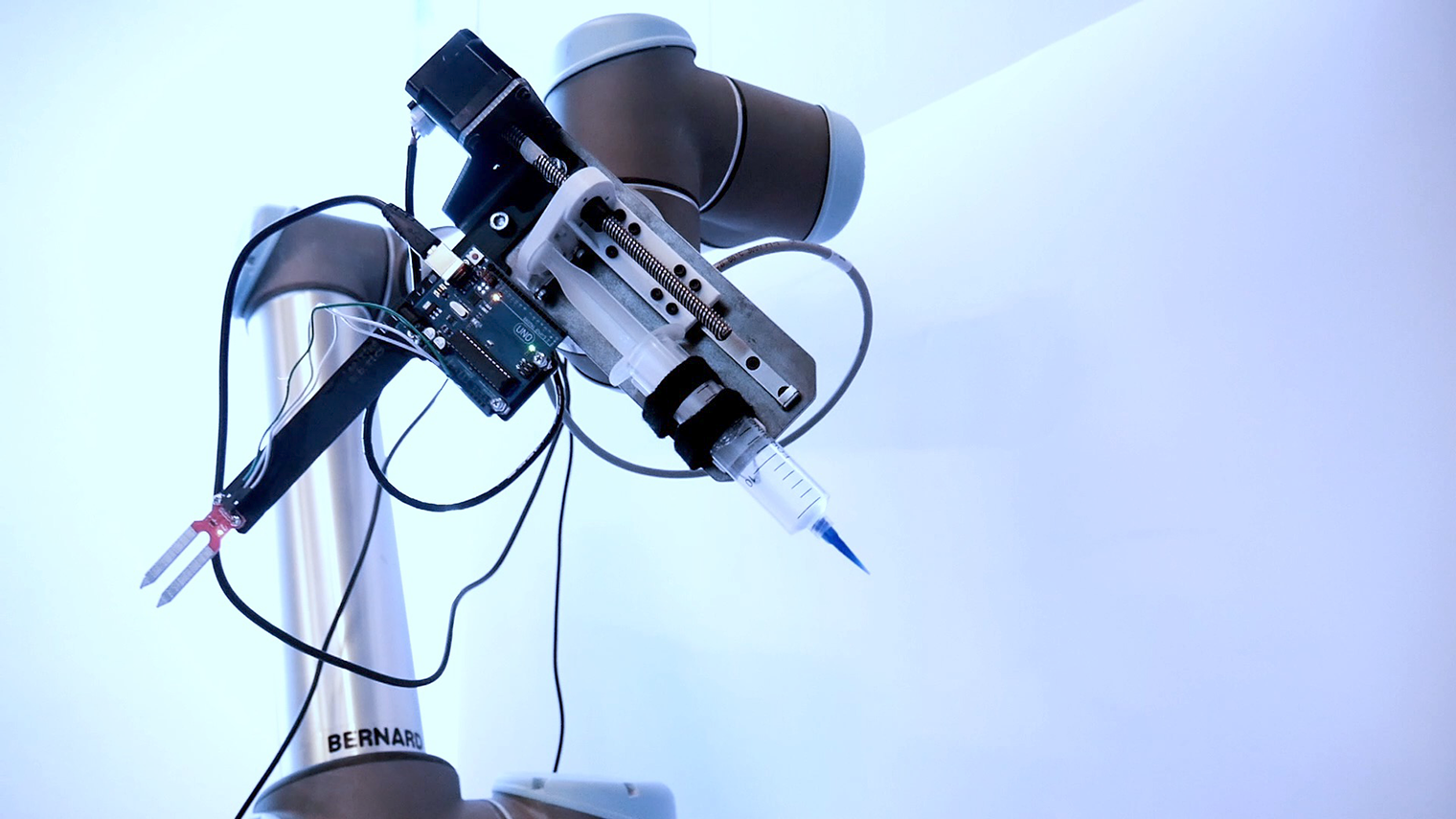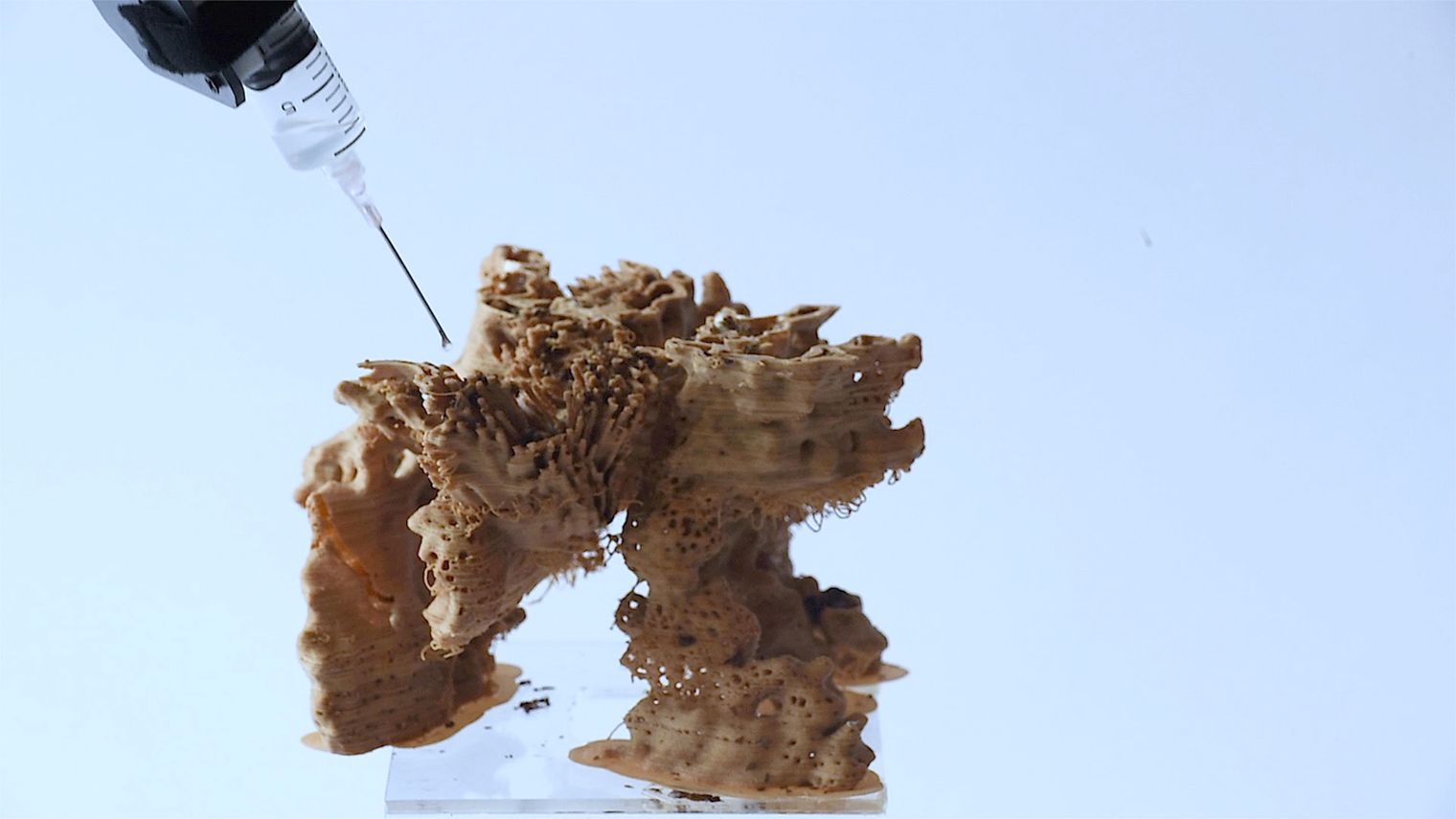3D Printed Wooden Sculptures
Bio Scaffolds are a series of bespoke sculptures, 3D printed from a wood-based bioplastic material. Through a non-anthropocentric approach to design, form is designed to orchestrate biological growth, generating intricate and complex ornamental structures.
As an artist who is inspired by the multitude of species that inhabit our earth, I often refer to the wonderfully complex world of nature for inspiration. Specifically, I work with mycelium, which provides a key to understanding the planet on which we live.
Mycelium is the entangled root structure of a fungus that forms mushrooms on the earth’s surface. Due to the organisms ability to up-cycle materials and biodegrade them, mycelium is often considered a sustainable alternative to synthetic materials. Within nature, mycelium consumes fibrous nutrients contained in wood and organic waste.
Converting this scientific research to the robotics field, I have discovered that my mycelium is able to consume the fibrous properties contained within a customized wood-based- 3D-printed filament. Similar to the process of the medical bioscaffold, mycelium may eat through any 3D-printed scaffold fabricated from this fibrous filament, and adopt any geometry provided. Using customized algorithmic code, form is computationally designed to orchestrate the growth of mycelium through geometric features such as posterity and textured scales.
Through form and materiality, ‘BioScaffolds’ are designed to ‘look alive’ and blur the boundaries between the natural and artificial realms. If mycelium is applied to the sculpture, the organism will eat through the designated wood-based filament, assuming its shape. If mycelium is not applied, these empty scaffolds are appreciated as ornamental sculptures within one’s home.
‘Bio Scaffolds’ has been featured in a wide range of publications, architectural conferences, art installations, and academic journals.
As Featured In…
Natural
The Materials utilized for 3D- printing are derived from renewable resources such as sugar cane, corn starch and wooden fibers. Unlike most petroleum based- synthetic plastics that are commonly utilized for 3D-printing; BioLab utilizes a plant based alternative comprised of wooden fibers and natural bioplastics.
Biodegradable
Being a plant based- bio plastic, each 3d printed sculpture is 100% biodegradable and decomposes back into the soil. This reduces carbon emission and reduces waste to our landfills.
Locally Sourced
Wooden polymers are extracted from locally sourced wooden offcuts that are reused and reproposed to create the filament for 3D printing.
Sydney Blue Gum
Sold Out
Contact to order

Alien Embryo
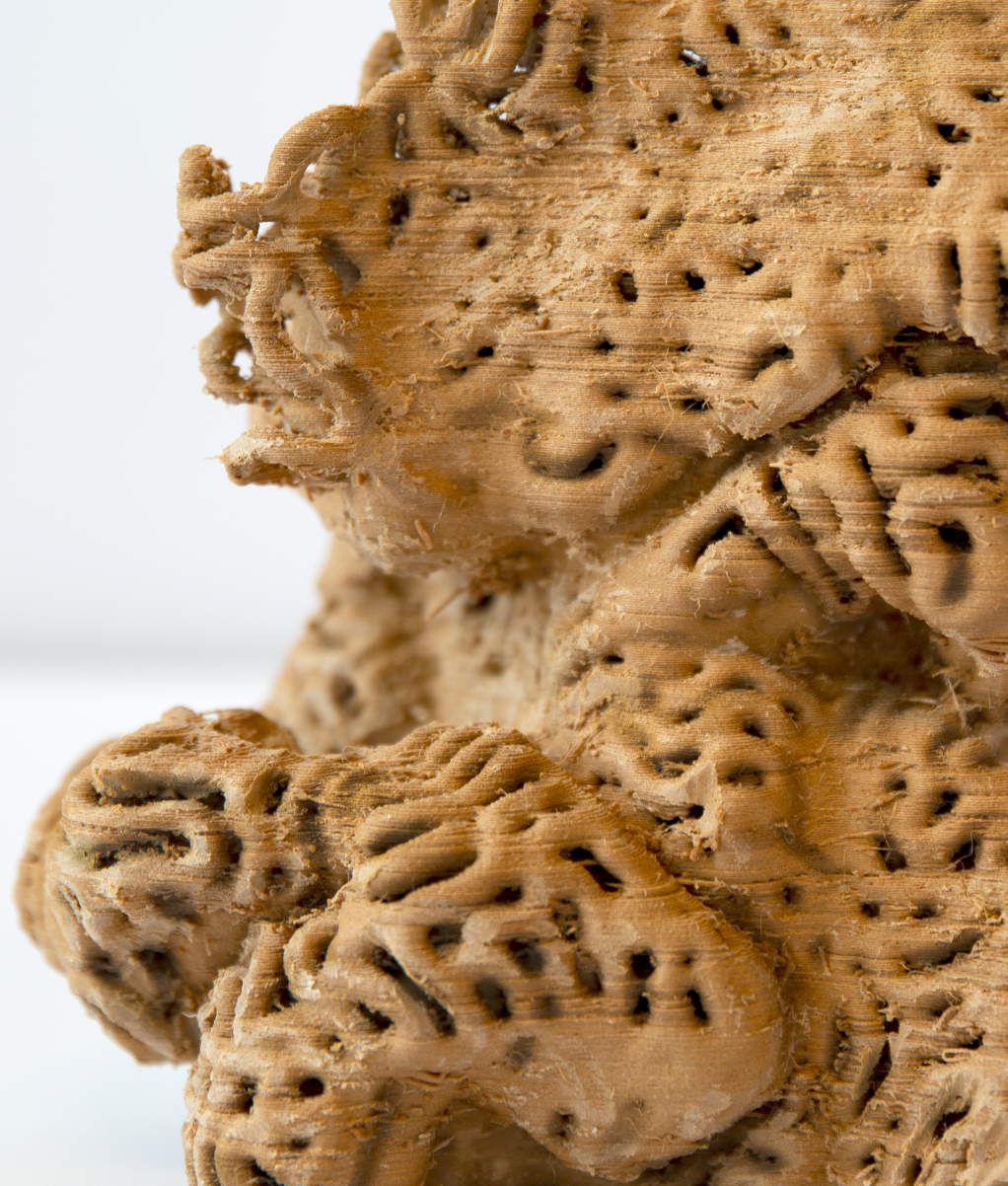
Digital Antennas

Alien Embryo

Ruched Veins
Sold Out
Contact to order
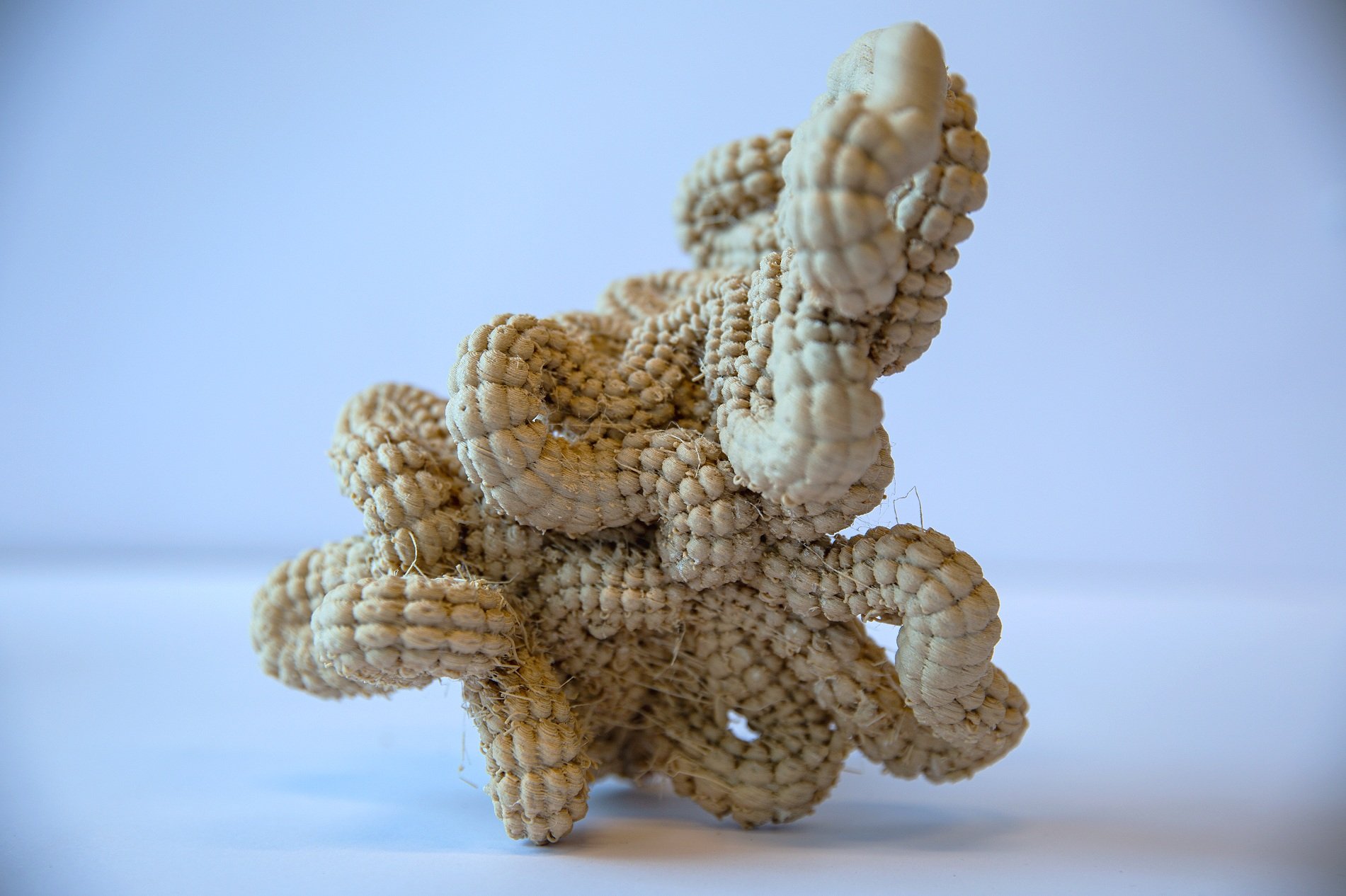
Ruched Veins
Sold Out
Contact to order
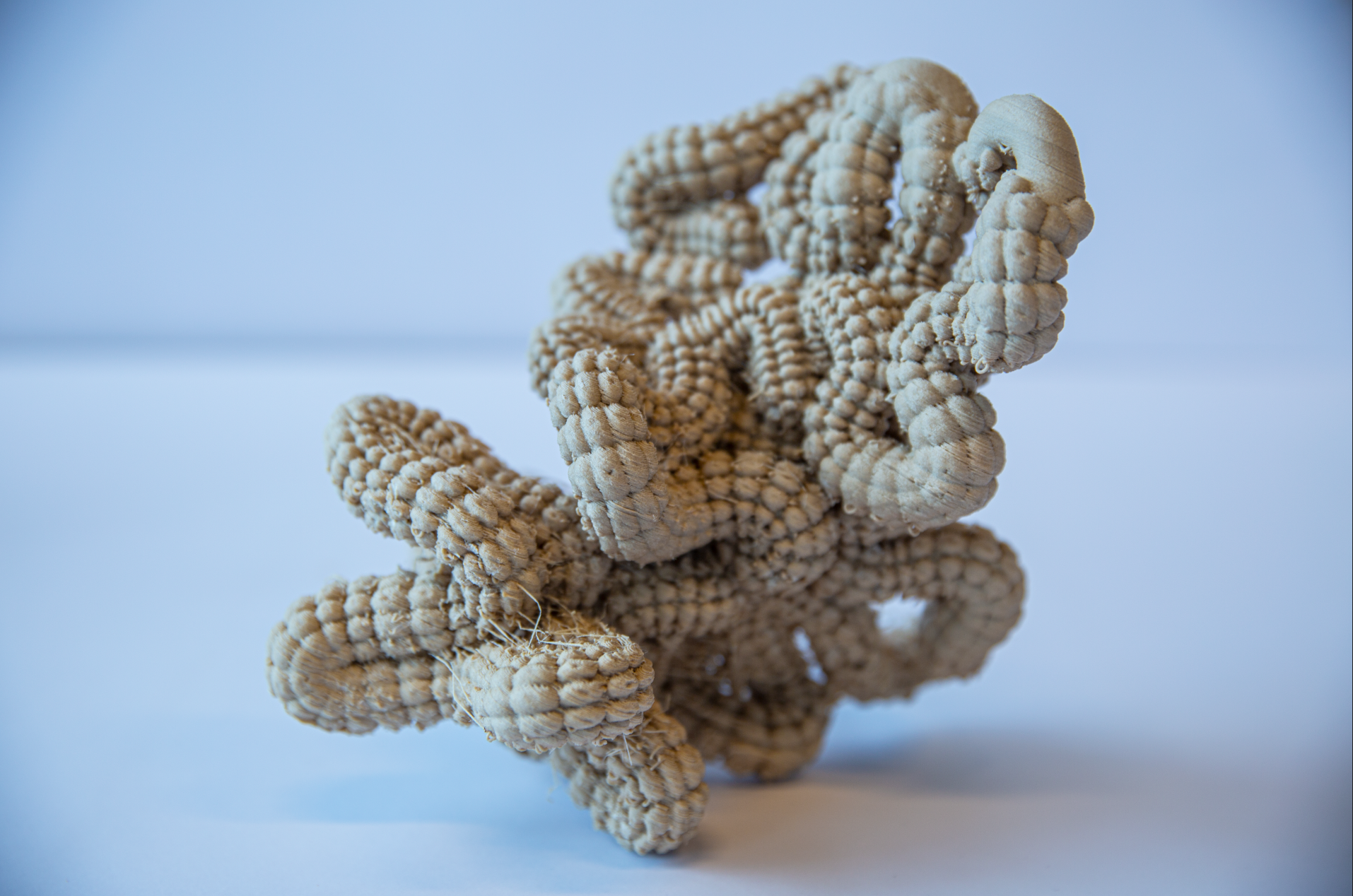
Digital Antennas










